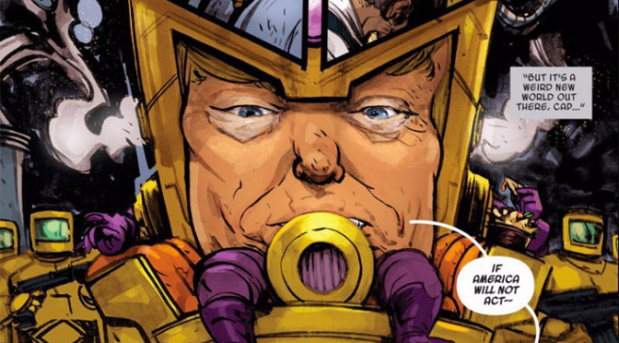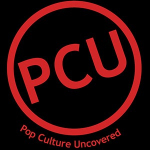Black Lightning: The Growing Relevance of PoC Shows (Part I)
Pop culture is living in a tumultuous social and political time lately. With everything from white supremacists marching in the streets to unashamed bigotry in the highest offices, there is a need to resist these racist movements.
Even before recent events, we had some of that in the form of Luke Cage. The third in Netflix’s Marvel series was unabashed in its “blackness,” as it presented African-American culture and confronted their issues.
This comic icon brought to life was enriched with the music, culture, and lifestyle of Harlem and New York City. Not to mention, the obvious allegories regarding gentrification and police brutality made Luke Cage one of the most relevant shows of 2016.
Of course, that was a mere month before the General Election, and the series was made long before anyone knew what was coming.

Hollywood and pop culture have been in overdrive recently, pushing hard against the brazen racist movements rearing their head. We’ve seen celebrities taking a stand, PoC directors and actors winning accolades, and an Afro-centric comic movie pre-sold almost as much as a Star Wars film (and had better early reviews).
Amidst all this, we also received a new show celebrating a different African-American superhero: Black Lightning. Another comic character from the era of 70’s Blaxploitation, it looked like the CW hoped to cash in on the Luke Cage and Black Panther hype.
I can safely say, they not only succeeded but probably ended up with a show more relevant than either.
Now, it’s one thing to look at one person’s opinion on this, especially from someone of my Caucasian persuasion, so I’ve decided to bring in some extra help. My sib from another crib, vidder and author, Holdt, will help me explain why we think Black Lightning outdoes the MCU when it comes to representation and issues.
Holdt: This topic is pretty deep, though, so we’re going to need more than one article. Today, we’ll talk about a few of the broader aspects, but we recommend you join us in Part II for more discussion.

African-American Issues, Not Just Inner-City Issues
One of my favorite aspects about Black Lightning is that the city of Freeland is broader than the solidly urban landscape of Luke Cage. This setting shows far more to African-American life, culture, and community than the “inner city” stereotype.
Holdt: I enjoy the broad scope of environments in Black Lightning; like real life, there’s more to a community than the worst aspects of it. There’s a particularly American experience that has nothing to do with “the hood” but still demands that one be “black,” and I love how the show denies some of those stereotypes.
Not to mention, the setting of Freeland is reminiscent of our experiences growing up in Prince George’s County. That mix of the “urbs” and “burbs” and the intersection of the upper, middle, and working classes.
Holdt: What was most striking was their portrayal of a modern metropolitan public school system. They covered many problems students and staff face, like equal education opportunities, the differing expectations of “middle class” and “working class” teenagers, and school violence (both implicit and explicit).

Also, many of these characters came from the same backgrounds, often schoolmates, friends, and mentors. Yet, they end up on very different paths; they are opponents and neighbors, showing respect and antagonism at the same time.
Holdt: There’s an apparent difference between the education level of the protagonists and antagonists, from the very first episode. In contrast to racist stereotypes, this isn’t about intelligence but the experiences and obstacles each character has faced.
Can we also talk about the first episode and how many minority issues it covered? Black Lightning managed to present gang violence, protests and activism, African-American family relationships, racial profiling and aggressive policing, and the lack of confidence the black community has in law and justice, all in the first five minutes.
Holdt: Anissa’s arrest while non-minorities go free, Jefferson being profiled and pulled over; this show pulls no punches with two miscarriages of justice in under two minutes. These issues are at the forefront of civil rights issues, and they’re handled in a weary, “matter of fact” way.

These problems exist for PoC regardless of their income, their upbringing, their residence, etc. This issue isn’t something specific to people in Harlem or Oakland, but across the country (and the world), and Black Lightning puts a spotlight on it.
Holdt: Black Lightning isn’t a “Big Bad of the Week” offering; it’s character-driven, and it shows in how it handles sensitive subject matter. Look at how it explores “negging” and predatory cruising of young black women and the expectations placed on PoC teenagers from different economic classes.
There’s so much more to talk about this show, but we can only fit so much in one discussion. How these characters are represented, how they behave; Black Lightning aspires and inspires.
Holdt: Did I say I loved this show? I love this show! I look forward to getting into some of these other subjects in the next article.
Catch Black Lightning Tuesdays on CW. Check your local listings for times. Also if you are in the MD DC VA area, come to Awesome Con to meet Cress Williams.


Reblogged this on holdtvids.
LikeLike